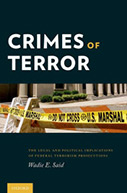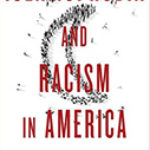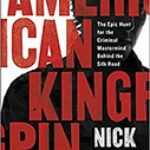Crimes of Terror: The Legal and Political Implications of Federal Terrorism Prosecutions

Author: Wadie E. Said
Publisher: New York: Oxford University Press, 2015. 207p.
Reviewer: David Schultz | March 2016
Since 9/11, the United States’ declared war on terrorism has been fought along two dimensions. One is the military operation that took America into Afghanistan, putatively Iraq, and into other areas in order to combat Al Qaeda and now ISIS. The other has been a law enforcement policing battle, seeking out individuals suspected of terrorist activity in the US and beyond, and using the criminal justice process to apprehend and prosecute them. Crimes of Terror by Wadie E. Said investigates the law enforcement battle against terrorism.
Said’s perspective in telling the story of the law enforcement battle against terrorism is unique. Prior to teaching, he represented several suspected terrorists. Said’s experience led him to write a book that marches readers through the various stages of how the government prosecutes terrorism. Chapter one describes identification and surveillance of suspected terrorists, chapter two the laws used to prosecute terrorism, chapter three use of evidence and prosecution, chapter five sentencing and confinement, and chapter four features cases studies of Jose Padilla and Ahmed Ghailani. The thesis and conclusion of the book is that the law enforcement war on terrorism has come at great expense and bending of the US Constitution, trampling on individual rights while also perverting and extending criminal justice legal doctrines beyond their original purposes.
Perhaps the most interesting part of the book is chapter one, describing the surveillance and identification of possible terrorists. At the heart of law enforcement’s battle is identifing who a terrorist is, leading the US government to adopt from the radicalization thesis that New York City and the FBI have forwarded. This thesis, about the process of how individuals are transformed psychologically into terrorists, is at the heart of the policing process to identify potential suspects.
The radicalization thesis is central to the law enforcement war on terrorism, taking its cue from two other recent American wars. From the Vietnam War, one lesson learned is that the struggle for the hearts and minds of people is just as important as the one fought with bullets and bombs. There is a psychological aspect to terrorism, looking for signs that individuals are being socialized into becoming anti-American terrorists, and developing appropriate tools to interdict this process. The war on drugs birthed the concept of profiling; specifically, the idea that one could develop a drug courier profile. Police would use that profile to identify individuals on planes and buses, offering probable cause to stop and search. It was only a short step from drugs to racial and then terrorist profiling. Together the lessons of Vietnam and the war on drugs yield the tools at the basis of the law enforcement battle against terrorism.
But as Said points out, this profiling technique, like the drug and racial profiling before it, is highly flawed, producing too many false positives. It has also justified extensive use of informants’ covert operations to find suspects. One message that emerges in this book is how a flawed theory has pushed law enforcement into legally questionable techniques to identify suspected terrorists.
Chapters two, three, and five similarly paint pictures of how 9/11 really did change everything when it came to the laws and process to prosecute and sentence suspected or convicted terrorists. The linchpin is 18 US Code §2339B, which criminalizes giving “material support” to facilitate terrorist activities. Said describes how the law has been pushed to describe nearly any activity, including charitable, and has been used almost exclusively against Arab, Muslim, or Islamic groups, as representing a form of material support. Chapter three reviews the increased relaxation of rules of evidence, such as with regard to wiretapping, interrogation, and use of expert witnesses, now allowed to be used in terrorist cases. Effectively, FISA courts and rules, normal rules of evidence, and basic due process and constitutional limits are weighed in favor of the prosecution. Finally, the new laws that add additional sanctions for terrorist convictions permit extended use of solitary confinement and isolation of prisoners for longer and longer periods of time.
Fear and prejudice often are the basis for America doing bad things. This is the message of the book. Fear arising out the 9/11 attacks and prejudice against Arabs and Muslims have resulted in a massive assault on the Constitution and civil liberties. These changes are not confined to the law on terrorism but have broader implications for all criminal prosecutions in the US. The strength of Crimes of Terroris identifying the flawed social science behind the law enforcement battle against terrorism and how it, along with fear and prejudice, has adversely compromised the entire policing and legal process. The book is a call for a reset on how we fight terrorism, both to be more effective and to respect the rule of law.
David Schultz, Professor, Department of Political Science, Hamline University


